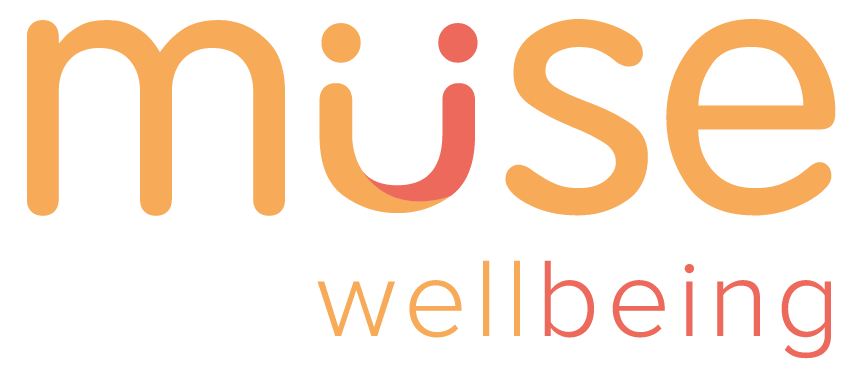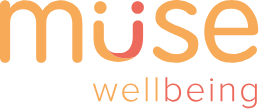Muse Wellbeing: Free PSHE and RSE Scheme of Work

David is the Muse Wellbeing director and lead curriculum developer. His Main passions include education, surfing and travelling.

George is an international school teacher based in Asia. A passionate language learner and polyglot, he thrives in diverse classrooms.
Muse Wellbeing: Free PSHE and RSE Scheme of Work
Muse Wellbeing is a comprehensive PSHE and RSE curriculum for primary schools. The Muse curriculum provides a complete PSHE scheme of work for each year group within primary education. Schools will also find all statutory RSE topics meaning they can deliver an RSE scheme of work that meets and exceeds the guidelines from the Department for Education.
Muse Wellbeing aims to provide access to high quality wellbeing lessons for all children through a holistic PSHE curriculum that will nurture the growth of resilient and caring students. All lessons come with differentiated tasks and materials as well as extensions and challenges to ensure no child is left out.
Currently, Muse Wellbeing is a free-to-access PSHE and RSE scheme of work that can support schools deliver engaging lessons that will inspire pupils and give them the skills for life in modern Britain.
What is Muse Wellbeing?
Muse Wellbeing is an education platform delivering a comprehensive PSHE, RSE and Wellbeing curriculum for primary schools. Not only does it meet the Department for Education requirements for statutory RSE topics but it exceeds them to provide a whole school curriculum covering many other wellbeing topics.
With 216 lesson plans and accompanying resources, Muse Wellbeing provides a full curriculum for years 1-6 in UK primary schools.
Muse Wellbeing is run by a team of UK-qualified teachers, wellbeing advocates, and educational creatives to serve and support better wellbeing for all children and school communities.
What is the PSHE Scheme in the UK?
PSHE stands for personal, social, health, and economic education. It is a non-statutory subject in the UK meaning schools are obliged rather than required to teach it. However, in 2020 some parts of the PSHE scheme were made statutory to better prepare students for life after school and foster better physical and mental health amongst young people.
It is now expected that schools should use a full PSHE scheme of work to build on the statutory RSE (relationship and sex education) curriculum. The PSHE scheme can be tailored to the needs of your pupils and therefore can differ between schools as long as the statutory elements are covered.
What is the Difference Between a PSHE and an RSE Scheme of Work?
In 2020 the DfE released guidance stating that parts of the PSHE curriculum should be statutory topics, meaning schools must teach these subjects. These statutory elements became known as RSE or RSHE. In primary schools, children must be taught relationships and health education; in secondary schools, sex education must also be taught. Some elements of sex education can form part of a primary PSHE scheme of work where appropriate.
Schools must deliver the mandatory RE (relationships education) curriculum but many now choose to deliver a full PSHE curriculum, recognising the importance of better physical and mental wellbeing for students and as part of promoting positive safeguarding.
Whilst an RSE scheme of work does cover topics that will allow children to better understand changes to their body, what healthy relationships look like, and how to take care of themselves and understand when something isn’t right, it wouldn’t cover as wider topics as a complete PSHE curriculum would.
A full PSHE curriculum in primary schools can build on and support the statutory RSE subjects whilst better equipping children for life in the modern world with financial education, career options and digital safety amongst other topics.
What are Muse Wellbeing’s 5 Core Values?
The Muse curriculum is built around 5 core values that are the building blocks for every lesson created within the PSHE curriculum. The 5 core values support growth in multidisciplinary mindsets and are all designed to nurture safer learning and boost student well-being.
- One: Mental & Physical Health.
- Two: Positive & Respectful Relationships.
- Three: Global Citizenship & Community Care.
- Four: Personal Growth & Economic Well-being.
- Five: Digital Citizenship & Online Safety.
How Can a PSHE Scheme of Work Help My Primary School?
Muse Wellbeing is a free PSHE scheme of work giving teachers and schools easily deliverable and highly engaging lesson plans and learning experiences.
Each classroom in KS1 and KS2 has 36 lessons totaling 216 lessons for the whole of primary school. The Muse curriculum is designed to be delivered weekly following the pre-planned and resourced lessons. Each lesson takes between 30 to 50 minutes and follows a progressive set of learning objectives and skills.
Each of the 216 lessons on the Muse Wellbeing portal comes with a lesson plan, lesson slides, learning resources and extra resources where applicable. On each plan is a suggestion for differentiation and further challenges to provide teachers with support for both SEND children and those looking for next steps in learning. These detailed plans and pre-made lesson slides take the pressure out of planning and allow teachers to deliver a comprehensive PSHE scheme of work to their students.
Lessons are organised into three main topics then these are broken down into six half termly topics of coverage as follows:
- Term 1: Health and Wellbeing
1:1 – Healthy Minds and Healthy Bodies
1:2 – Growth and Change - Term 2: Understanding Relationships
2:1 – Positive Relationship
2:2 – Respecting Others and Ourselves - Term 3: The World Around Us
3:1 – Thinking Locally and Globally
3:2 – Economic Wellbeing and Reflection
This structure is used from year 1 through to year 6 and lessons progress through the PSHE curriculum to develop deeper knowledge and understanding of these topics.
For example, the first lesson in year 1 is titled “How do you feel today?”, the first year 3 lesson is “What is mental health” and the first year 6 lesson is “Coping and self care”.
In the Muse Wellbeing portal, teachers can also find a yearly overview for each year group for all three main topics with main learning objectives and sub-learning objectives where applicable.
With a whole school Muse subscription, teachers have unlimited access to all lessons and resources in the PSHE curriculum as well as automatic updates to any course materials and ongoing support from the Muse Wellbeing team. All lessons and resources are hosted on the Muse Wellbeing website and accessed via the Muse portal.
What are the key features of Muse Wellbeing for schools and teachers?
Here are the key features of what Muse Wellbeing can provide for schools and teachers:
- Unlimited access to all lessons for all year groups throughout the subscription.
- Weekly lesson slides, plans, and resources for easy delivery of PSHE and RSE lessons.
- Differentiated resources to allow children of all needs and levels to learn.
- A progressive spiral curriculum building on understanding and knowledge throughout each year group.
- All statutory topics for RSE learning and an engaging PSHE curriculum.
- Lessons that actively encourage children to engage, share ideas and nurture independence through an inquiry-based approach.
- A visually appealing design to make learning fun.
- Intuitive lesson slides that make PSHE and RSE lessons easy to deliver.
- The Muse curriculum has been created by UK-qualified primary school teachers and SENDco leaders.
Will Muse Wellbeing always be free?
Right now the Muse Wellbeing curriculum is in beta development which means it is being regularly tested and improved to bring the highest quality PSHE and RSE schemes of work to primary schools across the UK. These improvements are made based on teacher and student feedback.
Final thoughts on using a free PSHE scheme of work
There has never been a better time to use a PSHE scheme of work. With increasing workloads for teachers and less time to plan engaging and stimulating lessons, Muse Wellbeing can offer schools support to ensure your pupils are well-equipped for their future and stay safe.
The Muse curriculum goes above and beyond the DfE guidelines around the RSE curriculum in primary schools to provide lessons on digital safety, careers, local and global issues, and much more. The lessons span the whole of primary school allowing pupils to consistently build on their knowledge and prepare them for the RSHE curriculum in secondary school as well as life after education.
Latest from our blog
Muse Wellbeing
Subscribe for RSHE & Wellbeing Updates & Learning Resources

Copyright © 2026 Muse | All Rights Reserved.
Would you like to logout of Muse Wellbeing?


